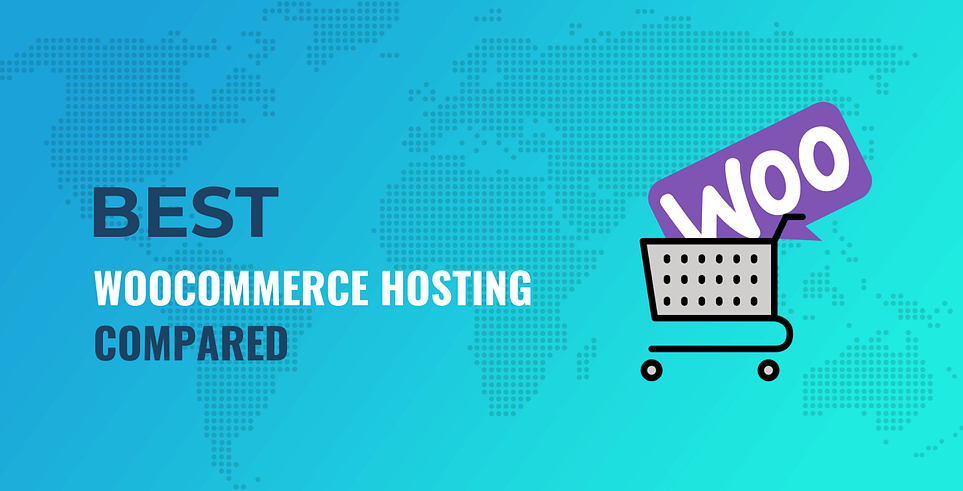While the allure of budget-friendly WooCommerce hosting is tempting, relying solely on cheap options can lead to performance issues, security vulnerabilities, and ultimately, lost revenue. The best WooCommerce hosting strikes a careful balance between cost, performance, and security features. This guide will help you navigate this complex decision, ensuring your online store thrives in the competitive e-commerce landscape.
Toc
- 1. Understanding Your WooCommerce Hosting Needs
- 2. Exploring Different WooCommerce Hosting Types
- 3. Key Factors to Consider When Choosing a Host
- 4. Top WooCommerce Hosting Providers in 2024: A Comparison
- 5. Related articles 02:
- 6. Emerging Trends in WooCommerce Hosting
- 7. Addressing Common Myths About WooCommerce Hosting
- 8. Conclusion
- 9. Related articles 01:
Understanding Your WooCommerce Hosting Needs

Selecting the best WooCommerce hosting begins with a clear understanding of your specific needs. Each online store has unique requirements, and assessing these will guide you in choosing the right hosting provider. Here are key factors to consider:
Traffic Analysis
Analyze your current traffic and anticipate future growth. Are you expecting a surge during holiday sales or marketing campaigns? Understanding these patterns is vital for selecting a host that can accommodate your needs, especially during peak times.
Content Storage Requirements
Consider the storage you will need for product images, videos, and other content. WooCommerce stores can expand quickly, so it’s prudent to choose a hosting solution that offers scalable storage options.
Plugin Compatibility Assessment
Identify the e-commerce functionalities you will require. Do you need specific plugins for payment processing, shipping, or customer engagement? Choosing plugins compatible with your hosting environment is crucial. For example, some payment gateway plugins might require specific server configurations or PHP versions. Incompatible plugins can lead to site crashes or security vulnerabilities. Always check your hosting provider’s documentation for a list of supported plugins and their requirements before installation.
Budget Constraints
Hosting plans can vary widely in price. While it might be tempting to opt for the cheapest WooCommerce hosting option, consider the value you receive for your investment. A quality hosting provider can enhance performance and minimize downtime, making it a worthwhile expenditure.
Technical Expertise Level
Evaluate your technical skills. Are you comfortable managing your hosting environment, or would you prefer a managed WooCommerce hosting solution? For those lacking technical know-how, managed hosting can alleviate many concerns, allowing you to focus on running your store.
Exploring Different WooCommerce Hosting Types
When it comes to finding the best WooCommerce hosting, it’s essential to understand the various types available:
Shared hosting is typically the most affordable option, where multiple websites share server resources. While it is suitable for very small stores with low traffic, it comes with limitations such as slower speeds during traffic spikes and shared security risks.
Pros:
- Cost-effective for small businesses.
- User-friendly setup for beginners.
Cons:
- Limited resources can lead to performance issues.
- Shared security can pose vulnerabilities.
Managed WooCommerce Hosting
Managed WooCommerce hosting is specifically optimized for e-commerce. Providers usually handle technical aspects like updates, security, and backups, making it ideal for busy store owners who may lack technical expertise.
Pros:
- Enhanced performance tailored for WooCommerce.
- Increased security features and automatic updates.
Cons:
- Higher costs compared to shared hosting.
- Potential restrictions on server settings and plugins.
VPS Hosting
Virtual Private Server (VPS) hosting offers more resources and greater control than shared hosting. This option is suitable for growing businesses that need more reliability and performance.
Pros:
- Greater control over server settings.
- Better performance during high traffic.
Cons:
- Requires some technical knowledge.
- Higher costs compared to shared hosting.
Dedicated Hosting

With dedicated hosting, you have an entire server dedicated solely to your website. This option is best for large e-commerce stores requiring maximum performance and security.
Pros:
- Full control over server resources.
- Excellent performance for high-traffic sites.
Cons:
- Very expensive.
- Requires significant technical expertise.
Cloud Hosting
Cloud hosting is a flexible solution that allocates resources from multiple servers, ensuring scalability and reliability, especially during traffic spikes.
Pros:
- Scalability to manage sudden traffic increases.
- High reliability due to resource distribution.
Cons:
- Can be complex to manage.
- Pricing may fluctuate based on usage.
Cost and Scalability Comparison
The cost of hosting varies significantly across these types. Shared hosting offers the lowest entry point, ideal for small startups with minimal traffic. As your business grows and traffic increases, VPS or cloud hosting becomes more cost-effective in the long run, despite higher initial investment, due to their superior scalability and performance. Dedicated hosting remains the most expensive option, primarily suited for large enterprises with substantial traffic volume and complex needs.
Key Factors to Consider When Choosing a Host
When evaluating potential hosting providers, focus on these crucial factors:
Performance
Fast page load speed is critical for both user experience and SEO. Look for hosting providers that utilize SSD storage, caching, and Content Delivery Networks (CDNs) to enhance speed. Ideally, your WooCommerce site should load in under three seconds to avoid losing customers.
Security Features
Security is paramount for e-commerce operations. Ensure your hosting provider offers SSL certificates, firewalls, malware scanning, and regular backups to protect sensitive customer information and enhance trustworthiness.
Scalability
As your business expands, your hosting requirements will change. Choose a provider that allows easy upgrades to resources, ensuring your store can handle increased traffic without downtime.
Migration Services
If you’re transitioning from another host, look for providers that offer migration services. These can save you time and minimize downtime during the switch, ensuring a smooth transition to your new hosting environment.
Customer Support
Reliable customer support is crucial, especially for e-commerce businesses. Ensure your host provides 24/7 support through various channels and has expertise in WooCommerce.
Uptime Guarantees
Uptime is a crucial metric indicating the percentage of time your website is accessible. Aim for providers offering a 99.9% uptime guarantee or higher. Prolonged downtime can severely impact sales and customer satisfaction. Look for providers who proactively monitor their servers and have robust disaster recovery plans in place.
Pricing Transparency
Beware of hidden fees in hosting plans. Look for providers that offer clear pricing without unexpected charges for essential services.
Top WooCommerce Hosting Providers in 2024: A Comparison
Here’s a look at some of the best WooCommerce hosting providers for 2024, based on performance, security, support, and pricing.
SiteGround
Overview: SiteGround is well-known for its exceptional customer support and reliable performance.
Pros:
- High uptime guarantee of 99.9%.
- Exceptional customer service.
Cons:
- Higher renewal rates compared to initial pricing.
Counterpoint: While SiteGround offers excellent support, their pricing can be considered high compared to some competitors, especially for smaller businesses with limited budgets.
Bluehost
Overview: An officially recommended WooCommerce hosting provider, Bluehost offers user-friendly solutions at competitive prices.
Pros:
- One-click WooCommerce installation.
- Free domain for the first year.
Cons:
- Performance may decline on shared plans during high traffic.
Counterpoint: Although Bluehost is user-friendly, some users report slower speeds and performance issues on lower-tier plans.
WP Engine
Overview: A premium managed hosting provider focused on speed and scalability.
Pros:
3. https://xedap468.com/mmoga-the-ultimate-guide-to-vps-virtual-private-servers-for-e-commerce/
4. https://xedap468.com/mmoga-free-cloud-hosting-servers-for-students-a-beginners-guide/
5. https://xedap468.com/mmoga-the-modern-arsenal-harnessing-the-power-of-artificial-intelligence-tools/
- Excellent performance and security features.
- Ideal for larger e-commerce stores.
Cons:
- Higher cost than many other options.
Counterpoint: While WP Engine offers robust features, the higher pricing may deter small businesses or startups.
Cloudways

Overview: Cloudways provides a unique managed cloud hosting solution that emphasizes flexibility and scalability.
Pros:
- Pay-as-you-go pricing model.
- Easy to manage without extensive technical expertise.
Cons:
- Can be complex for beginners to navigate.
Counterpoint: Cloudways’ flexibility is a double-edged sword; while it appeals to some, others may find the setup daunting.
A2 Hosting
Overview: Known for its speed-optimized solutions, A2 Hosting has data centers located globally.
Pros:
- Fast loading times with Turbo plans.
- Good options for developers.
Cons:
- Mixed reviews on customer support quality.
Counterpoint: Despite A2 Hosting’s performance advantages, customer service experiences can be inconsistent.
Nexcess (Liquid Web)
Overview: Nexcess excels in delivering scalable solutions tailored for WooCommerce.
Pros:
- Auto-scaling capabilities during traffic spikes.
- Excellent performance and reliability.
Cons:
- Higher pricing compared to entry-level providers.
Counterpoint: Nexcess provides great features, but its cost may be a barrier for smaller businesses looking for affordable solutions.
Emerging Trends in WooCommerce Hosting
As we move further into 2024, several trends are shaping the WooCommerce hosting landscape:
- Serverless Architecture: This approach allows for highly scalable and cost-effective solutions by dynamically allocating resources based on demand. This eliminates the need to manage servers directly, simplifying operations for e-commerce businesses.
- AI-Powered Optimization: AI is increasingly used to optimize website performance, security, and customer experience. This includes features like automated performance tuning, intelligent caching, and predictive analytics for identifying and resolving potential issues proactively.
- Increased Focus on Sustainability: More hosting providers are adopting environmentally friendly practices, such as using renewable energy sources for their data centers, to appeal to environmentally conscious businesses.
Addressing Common Myths About WooCommerce Hosting
Free WooCommerce Hosting Limitations
A common misconception is the availability of free WooCommerce hosting. While some providers may offer free plans, they often come with significant limitations, such as slow speeds, poor support, and security vulnerabilities. Investing in a reliable hosting provider is essential for your store’s success.
Comparison with PrestaShop
Both WooCommerce and PrestaShop are popular e-commerce platforms, but WooCommerce is generally regarded as more user-friendly, particularly for those familiar with WordPress. PrestaShop may require more technical expertise, which can be a barrier for some small business owners.
The Fastest WooCommerce Hosting
Performance is a critical consideration when selecting a hosting provider. However, focusing solely on the “fastest” option may not yield the best value. Evaluate overall performance, including uptime, speed, support, and security, rather than just speed alone.
Conclusion
Choosing the best WooCommerce hosting in 2024 requires careful consideration of your specific needs, including performance, security, scalability, and support. By utilizing the insights from this guide, you can confidently select a hosting provider that aligns with your business goals, ensuring the success of your online store. Remember, investing in quality hosting is investing in your business’s future growth and success. Embrace these recommendations and trends to navigate the evolving landscape of e-commerce effectively.











